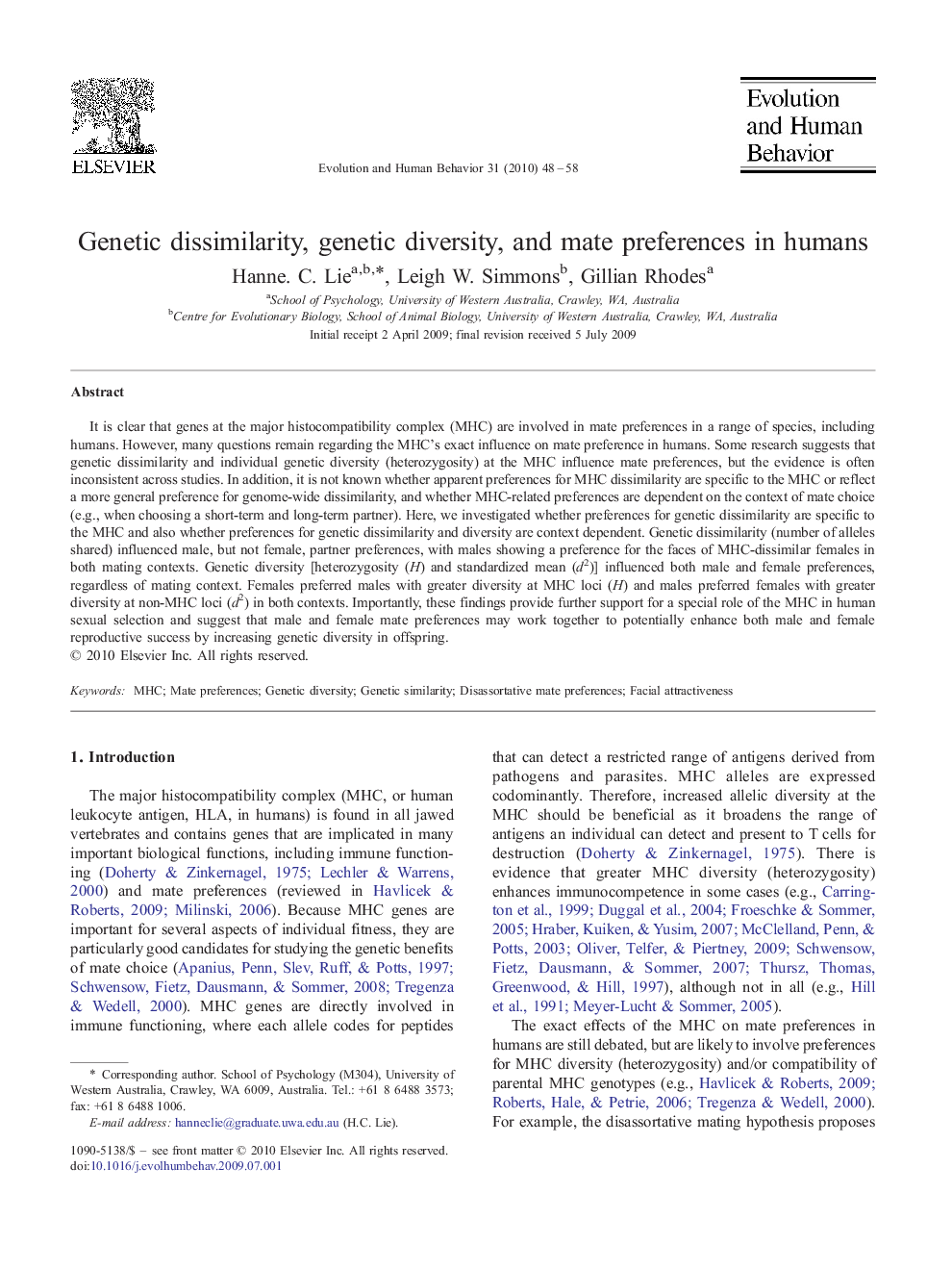| کد مقاله | کد نشریه | سال انتشار | مقاله انگلیسی | نسخه تمام متن |
|---|---|---|---|---|
| 943326 | 925458 | 2010 | 11 صفحه PDF | دانلود رایگان |

It is clear that genes at the major histocompatibility complex (MHC) are involved in mate preferences in a range of species, including humans. However, many questions remain regarding the MHC's exact influence on mate preference in humans. Some research suggests that genetic dissimilarity and individual genetic diversity (heterozygosity) at the MHC influence mate preferences, but the evidence is often inconsistent across studies. In addition, it is not known whether apparent preferences for MHC dissimilarity are specific to the MHC or reflect a more general preference for genome-wide dissimilarity, and whether MHC-related preferences are dependent on the context of mate choice (e.g., when choosing a short-term and long-term partner). Here, we investigated whether preferences for genetic dissimilarity are specific to the MHC and also whether preferences for genetic dissimilarity and diversity are context dependent. Genetic dissimilarity (number of alleles shared) influenced male, but not female, partner preferences, with males showing a preference for the faces of MHC-dissimilar females in both mating contexts. Genetic diversity [heterozygosity (H) and standardized mean (d2)] influenced both male and female preferences, regardless of mating context. Females preferred males with greater diversity at MHC loci (H) and males preferred females with greater diversity at non-MHC loci (d2) in both contexts. Importantly, these findings provide further support for a special role of the MHC in human sexual selection and suggest that male and female mate preferences may work together to potentially enhance both male and female reproductive success by increasing genetic diversity in offspring.
Journal: Evolution and Human Behavior - Volume 31, Issue 1, January 2010, Pages 48–58